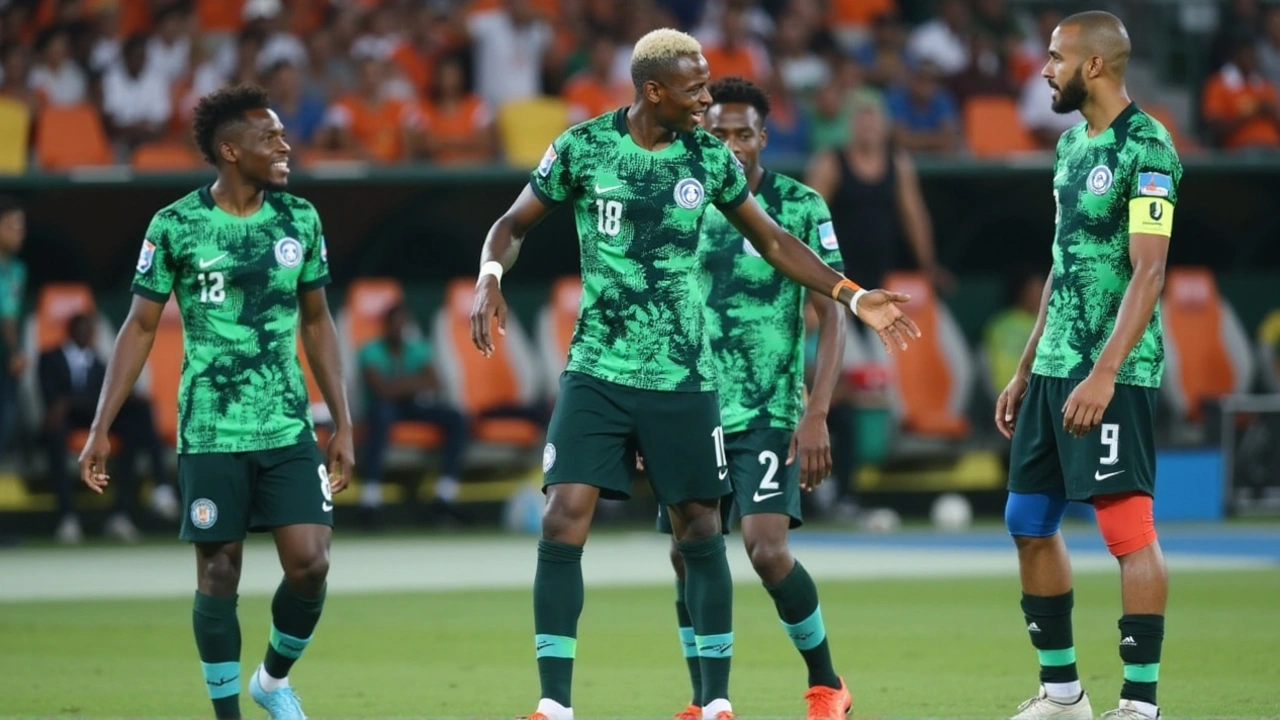Nigeria National Team Withdraws from Libya AFCON Qualifier Due to Safety Concerns
 Oct, 14 2024
Oct, 14 2024
Nigeria's Decision to Withdraw from Libya AFCON Qualifier
In a bold and unprecedented move, the Nigeria Football Federation (NFF) made the difficult decision to withdraw the national football team from an Africa Cup of Nations (AFCON) qualifying match in Libya. The decision came after the team experienced what was described as 'inhumane treatment' upon their arrival for the game. The Super Eagles were left stranded at an unused airport in Libya for over 15 hours, causing a significant outcry from both players and management. As tensions escalated, the safety and well-being of the team emerged as the top priority, leading to the NFF's decisive action.
Stranded in Libya
The Nigerian national team faced unexpected challenges upon arriving in Libya, where they were scheduled to play a crucial qualifying match for the upcoming AFCON tournament. Their chartered flight, intended to deliver them to their destination smoothly, landed them instead at an abandoned airport with no clear path forward. Debilitating conditions and a prolonged wait of over 15 hours took a toll on the players and staff. The lack of adequate facilities and resources at the airport only exacerbated the team's distress and fueled their decision not to proceed with the scheduled game.
Concerns Over Safety
Safety concerns became a focal point of the team's hesitation to proceed with the match. Team captain William Troost-Ekong expressed these anxieties publicly, emphasizing the threat posed by the conditions. The proposed three-hour bus journey from al-Abraq to Benina raised alarm bells, with Troost-Ekong voicing his unwillingness to risk his team’s safety. 'We have decided not to play this game,' he boldly declared, steering attention towards the substantial risks involved in continuing under the prevailing circumstances.
Calls for Sanctions
The situation drew criticism from notable figures in the football community, including former African Footballer of the Year, Victor Ikpeba. Sharing his perspective and backing the team's withdrawal, Ikpeba articulated a strong call for sanctions against Libya. He voiced his disbelief that Libya had been cleared to host international matches, given the high-risk environment. He highlighted the dire treatment experienced firsthand by the team, underlining the urgency of re-evaluating current hosting permissions for countries with potential safety hazards.
A Formal Complaint Filed
In response to the unfolding events, the Nigerian team filed a formal complaint with the Confederation of African Football (CAF). The formal documentation underscored Nigeria's position and the genuine concern for the welfare of its players. As of now, Nigeria leads Group D, with impressive performances, hinting at a promising trajectory in the qualifications. However, this recent withdrawal does raise questions about the impact on their standing and the broader implications for international football governance.
AFCON Qualifier Landscape
This decision arrives on the heels of Nigeria's previous triumph over Libya in Uyo, where they secured a 1-0 victory. The good performance positioned Nigeria as the group leader, intensifying the spotlight on this recent development. While Libya trails the group with minimal points, the narrative now shifts towards addressing player safety and creating conducive environments for competitive sports.
Reflection and Future Considerations
The ordeal faced by the Nigerian team in Libya serves as a crucial reminder of the intricate logistics and safety protocols necessary for the sport's success and integrity. As leagues and federations aim to sustain and promote international matches, the critical discourse will likely encompass host-country preparedness and the assurance of security for all participants. This scenario advocates for a thorough reassessment of not just policies but the very venues that are trusted to uphold international sports standards. In reflecting upon this episode, the football world is reminded of its duty to protect players, making sure their focus remains on the game and their skills, rather than their immediate hazards.